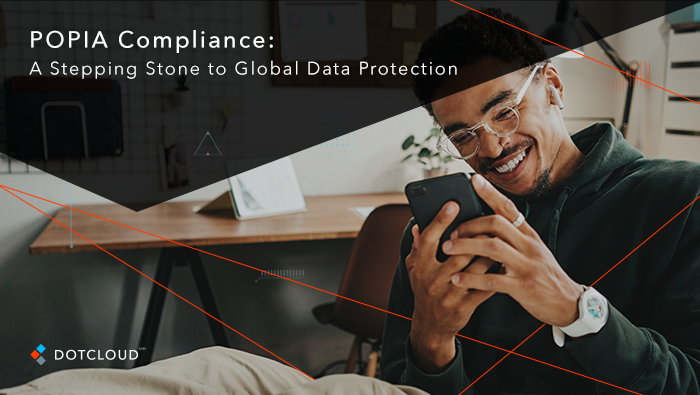Globally, businesses of all sizes collect and store vast amounts of customer information, making data protection a critical concern. South Africa is protected by the Protection of Personal Information Act (POPIA), implemented in 2020, which regulates how businesses handle personal data. POPIA aligns with global data protection standards like the General Data Protection Regulation (GDPR) of the European Union. This means that achieving POPIA compliance puts South African businesses on a strong footing for navigating the international data protection landscape.
For businesses to avoid data protection mishaps, it is encouraged that each organisation has a data protection or POPIA manager. According to IBM, The Biden Administration has recently joined this trend by encouraging federal agencies to appoint chief artificial intelligence officers, further stressing the importance of being compliant and its connection to global data protection standards. We’ll explore the benefits of a POPIA-compliant CRM system for South African businesses looking to expand their global reach. Finally, we’ll introduce WorkLite, a POPIA-compliant CRM solution designed to streamline your data management and compliance efforts.
What is POPIA?
POPIA is a landmark piece of legislation that regulates how businesses handle the personal information of data subjects (individuals). It outlines eight fundamental conditions for processing personal information:
- Accountability: Businesses are accountable for the personal data they process.
- Processing Limitation: Personal data must be collected for specific, lawful purposes and not further processed in a manner incompatible with those purposes.
- Data Minimisation: Personal data must be adequate, relevant, and limited to what is necessary about the purposes for which it is processed.
- Accuracy: Personal data must be accurate and, where necessary, kept up to date.
- Retention: Personal data must be kept in a form that permits identification of data subjects for no longer than is necessary for the purposes for which the personal data is processed.
- Integrity and Confidentiality: Personal data must be processed in a lawful manner and in a way that ensures appropriate security of the personal data, including protection against unauthorised or unlawful processing and accidental loss, destruction, or damage, using appropriate technical or organisational measures.
- Data Subject Rights: Data subjects have various rights regarding their personal information, including the right to access, rectify, erase, and object to the processing of their data.
- Compliance Measures: Businesses must implement appropriate technical and organisational measures to ensure compliance with POPIA.
The Importance of Data Protection
Data protection is essential for building trust with customers and safeguarding their privacy. Breaches of personal information can have severe consequences, including reputational damage, financial loss, and legal repercussions. POPIA compliance helps businesses demonstrate their commitment to data security and responsible data handling practices.
POPIA and GDPR Alignment
POPIA shares many similarities with the GDPR, the European Union’s data protection regulation. Both regulations emphasise the following principles:
- Transparency: Businesses must be transparent about how they collect, use, and store personal data.
- Accountability: Businesses are accountable for protecting personal data.
- Individual Control: Data subjects have the right to access, rectify, erase, and object to the processing of their personal data.
- Security: Businesses must implement appropriate security measures to protect personal data.
This alignment between POPIA and GDPR offers a significant advantage for South African businesses with global aspirations. By achieving POPIA compliance, these businesses are well on their way to complying with GDPR requirements, making it easier to operate in the European market.
Benefits of POPIA Compliance for South African Businesses
Here are some key benefits of POPIA compliance for South African businesses:
- Reduced Risk of Data Breaches: Implementing robust data security measures, as required by POPIA, helps safeguard customer information from unauthorised access or loss.
- Enhanced Brand Reputation: Demonstrating a commitment to data protection fosters trust and builds brand loyalty with customers.
- Improved Customer Relationships: Respecting customer privacy rights fosters positive customer interactions and builds stronger relationships.
- Competitive Advantage: In a global marketplace where data privacy is a growing concern, POPIA compliance can be a competitive advantage.
- Simplified Global Expansion: Compliance with POPIA lays the groundwork for compliance with other international data protection regulations, making it easier to expand into new markets.
CRM and Data Protection
Customer relationship management (CRM) systems are essential tools for businesses to manage customer interactions and data. However, CRM systems also store a wealth of personal information, making them a potential target for data breaches. Choosing a POPIA-compliant CRM system is crucial for businesses to ensure they are meeting their data protection obligations.
How a POPIA-compliant CRM like Worklite Can Help Businesses Comply with GDPR
A POPIA-compliant CRM system can significantly simplify compliance with GDPR for South African businesses. Here’s how:
- Data Minimisation: The CRM should allow businesses to collect only the personal data necessary for specific purposes.
- Data Access and Correction: The CRM
WorkLite, a Dotcloud offering stands out as a POPIA-compliant CRM solution designed to empower South African businesses with secure customer data management. It adheres to POPIA’s core principles by offering features like granular access controls to minimise data exposure, data field customization to collect only necessary information, and robust data encryption to safeguard sensitive customer details. WorkLite simplifies compliance by facilitating user consent management and providing clear audit trails for data processing activities. By centralising customer data in a secure environment, WorkLite empowers businesses to streamline data management, minimise the risk of breaches, and ensure they operate following POPIA regulations.


Recent Comments